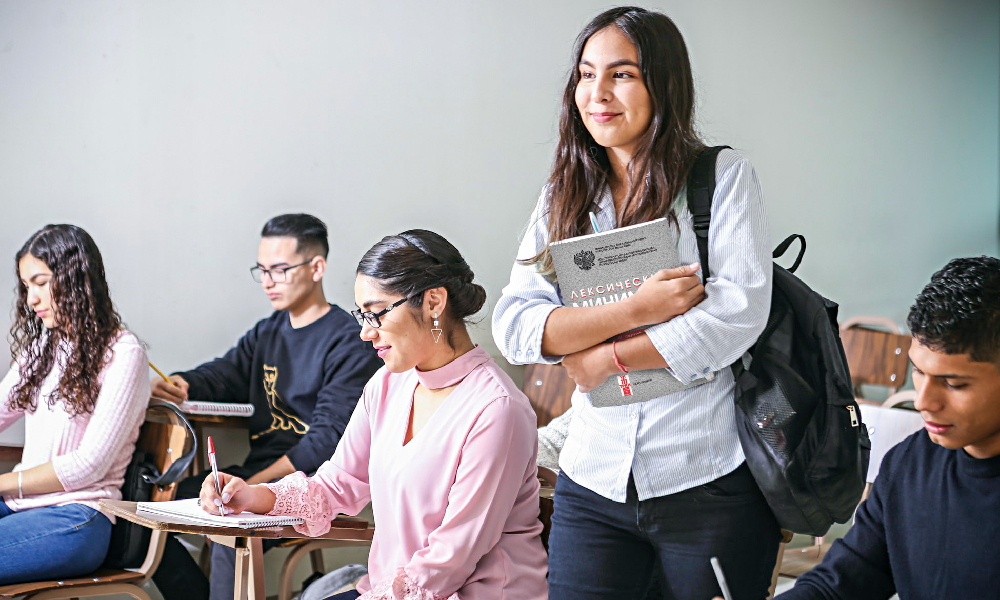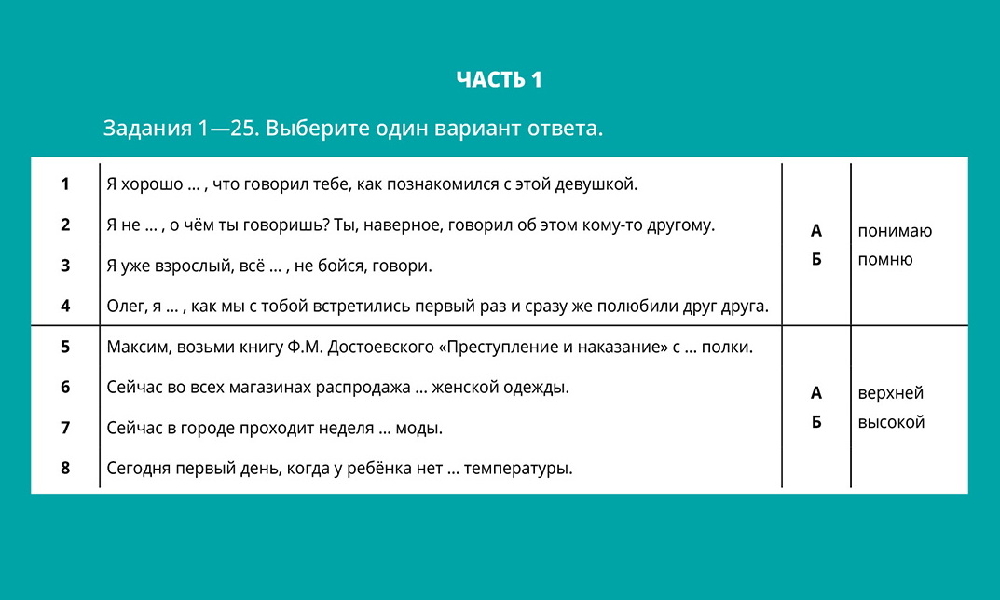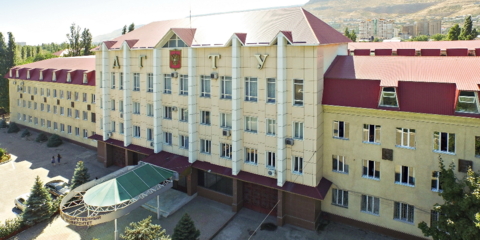
The Test of Russian as a Foreign Language (TORFL) has been conducted since the 1990s. The TORFL levels comply with the Common European Framework of Reference for Languages, CEFR:
- Elementary Level (TEL/A1)
- Basic Level (TBL/A2)
- The First Level Certificate (TORFL-I/В1)
- The Second Level Certificate (TORFL-II/B2)
- The Third Level Certificate (TORFL-III/C1)
- The Fourth Level Certificate (TORFL-IV/C2). It is a part of the global foreign language testing system similar to Cambridge English, IELTS, DELF, DALF, DELE, and others.
At the moment TORFL geography is rather broad. Mailing envelopes with the test certificates are regularly sent to various countries. For example, the international Russian language exam is conducted by the Language Testing Center at St. Petersburg University in Europe—Germany, Greece, Italy, Great Britain, Switzerland, the Netherlands, Poland, the Czech Republic, Serbia, etc., in Asia— China, Singapore, South Korea, Japan, in South America, in particular, Brazil and Argentina, and other countries. Now SpbU has over 100 centers in 40 countries.
To take TORFL, you don't need to be a university student or study Russian at a language school. The test can be taken by all persons studying Russian, no matter how and where they study it.
Test takers also include school students, university students majoring in linguistics, and MBA students, and, for example, experienced engineers who studied Russian independently.
Like other testing systems within CEFR, TORFL assesses the level of communicative competence. Each test comprises five subtests:
- Vocabulary. Grammar
- Reading
- Listening
- Writing
- Speaking
The test is considered successful if you have scored at least 66% for each subtest. However, you can get your certificate if you have scored 60% for one subtest, other subtests being successful. If necessary, you may retake one or two subtests.
The TORFL certificate is a state-recognized certificate, which is common for all testing institutions. TBL/A2, TORFL-I/B1, TORFL-II/B2, TORFL-III/C1 and TORFL-IV/C2 certificates are non-expiring, and TEL/ A1 certificate is valid for 5 years. Each certificate is accompanied by a statement specifying each subtest score. This statement can be drawn up in any foreign language at the request of test-takers.
TORFL exam materials are developed according to the uniform sample. You can familiarize yourself with the task format and assessment criteria using the Standard Tests of Russian as a Foreign Language issued for all levels. You can test your knowledge and practice before your exam using test preparation materials. They are usually available on the websites of the language testing centers.
Test preparation materials are updated twice a year. They are developed using modern, relevant texts and media materials. For example, in the TORFL-I/B1 Writing subtest candidates are invited to write their own text based on the article they have read and according to the question plan.
Text fragment and question plan example (TORFL-I/В1 Writing):
«…Современное общество невозможно представить без интернета. Наш журналист спросил жителей города, что они думают о плюсах и минусах интернета. Вот что они ответили.
Ольга Терехова, 20 лет, студентка:
«Я изучаю социологию, в интернете есть нужные мне статьи. Конечно, когда информации так много, иногда бывает трудно разобраться, где правда, а где ложь. Но для этого мы и учимся в университете.»
Виктор Соколов, 33 года, инженер:
«Я часто уезжаю в командировки, и только благодаря интернету могу связаться со своими коллегами, чтобы решить срочные вопросы по работе. И, конечно, интернет дает возможность всегда быть на связи с семьей и друзьями. Благодаря интернету люди, которых я люблю, всегда рядом. И это несмотря на то, что у нас нет времени встречаться…»
- Что думают об интернете эти люди?
- Как они его используют?
- С какими мнениями вы согласны?
- Какое у вас мнение по этим вопросам?
The TORFL-II/B2 Writing subtest comprises an informal recommendation letter:
Представьте, что Ваш друг ищет фотографа, чтобы сделать хорошие фотографии офиса и сотрудников своей компании для рекламного буклета. На основе предлагаемой рекламной информации напишите ему письмо и порекомендуйте ему несколько подходящих вариантов.
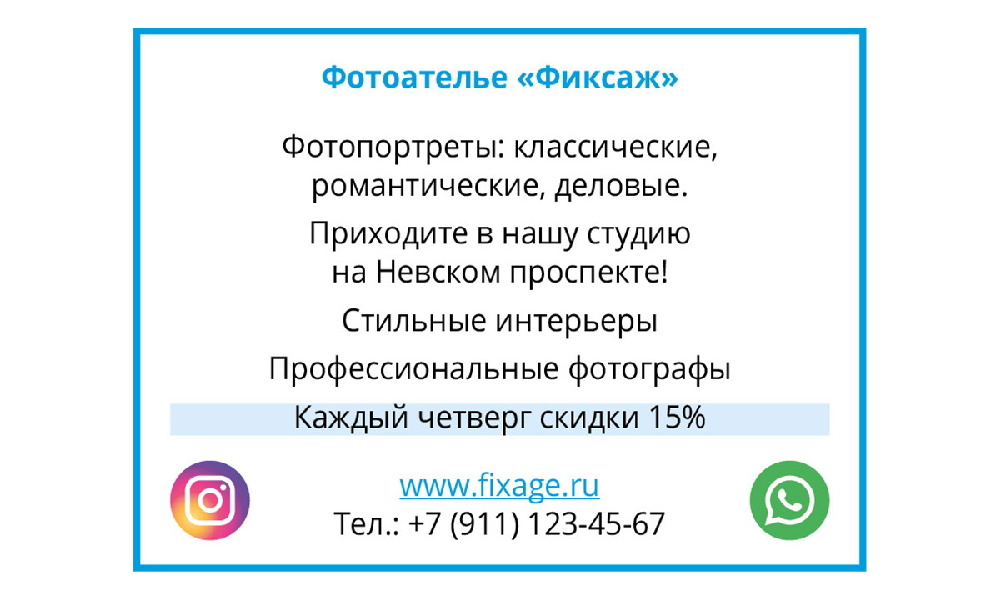
The TORFL-II/B2 Writing subtest comprises an informal recommendation letter
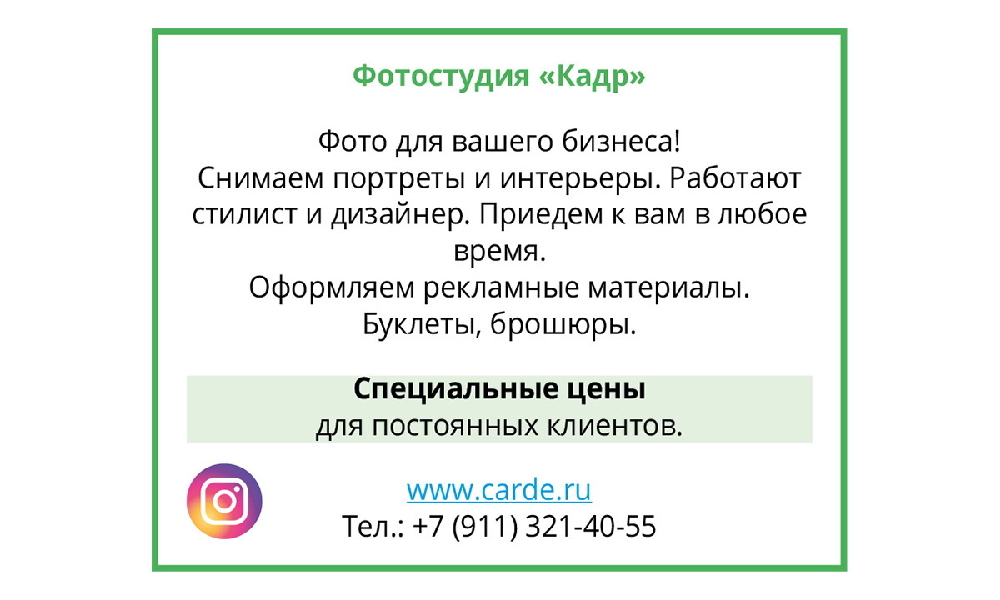
The TORFL-II/B2 Writing subtest comprises an informal recommendation letter
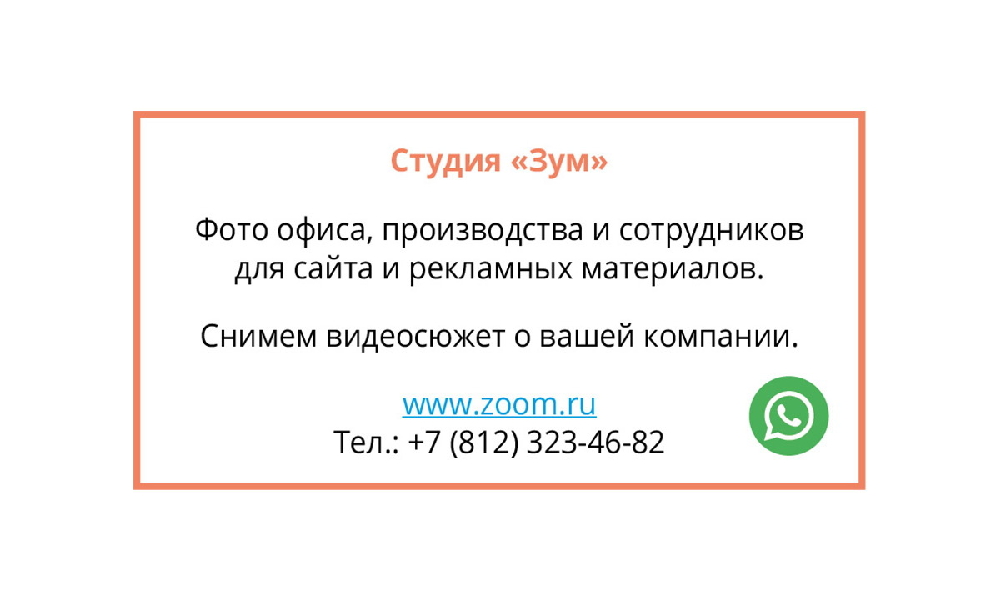
The TORFL-II/B2 Writing subtest comprises an informal recommendation letter
PreviousNextHow is the test held? It is usually held over a period of two days. Candidates take the Writing, Reading, and Vocabulary. Grammar subtests on the first day, and the Listening and Speaking subtests on the second day. If necessary, they can take all the subtests in a day, but experts recommend taking tests at В2-С2 levels over a two-day period due to the test duration (from 4 hours to 4 hours 30 minutes) and task complexity at these levels.
Candidates are required to bring their passport or any other identity document, a bilingual or explanatory paper dictionary (according to their level), and a pen.
You must not use any electronic devices during your exam. You are not allowed to use phones, tablet computers, smartphones, smartwatches, electronic dictionaries, and other gadgets.
Candidates get their tasks and worksheets. Here is a sample task and worksheet with a matrix for the Vocabulary.
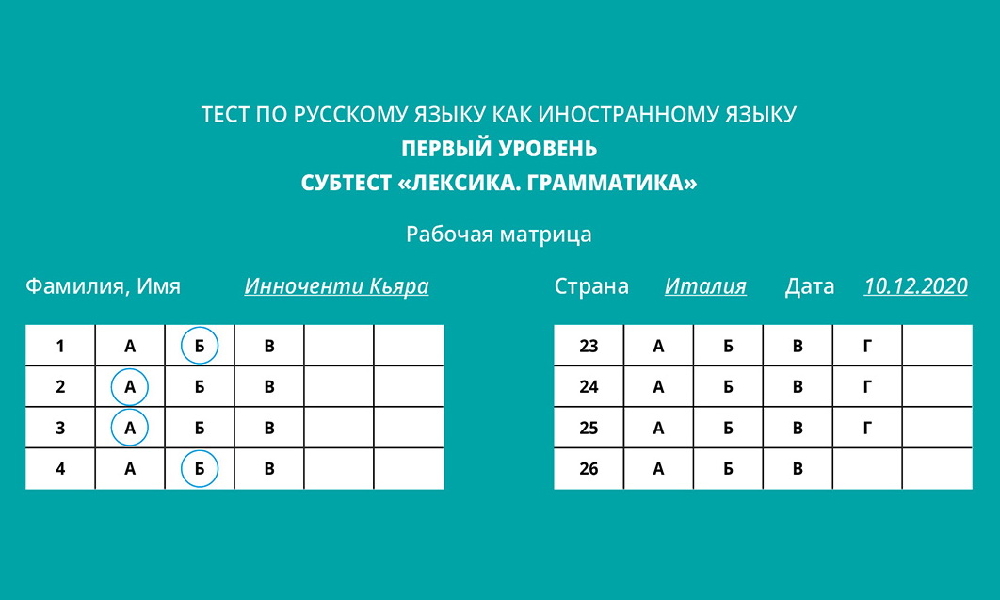
This subtest as well as the Reading and Listening subtests comprise multiple-choice cloze tests where you must choose an answer option and mark your choice on your working matrix.
PreviousNextNaturally, you must prepare for any exam to learn about task requirements and types. Many RFL textbooks are developed taking TORFL into consideration, and students familiarize themselves with the test structure in the process of studying Russian. But students surely need detailed information about the test procedure and task structure. For this purpose, Language Testing Centers usually organize seminars for candidates and teachers in the countries and cities where testing sessions are held. Also, anyone interested can listen to webinars. As some people have no opportunity to listen to them live, recorded webinars for candidates and teachers are available on the website.
During their webinars, teachers tell about task structure, share secrets about the successful completion of tasks, and prompt work tactics. For example, they explain how you can do reading tasks faster being guided by keywords and text structure, what you should focus on during the listening section, how to easily cope with the Writing subtest tasks, and how not to lose confidence during the Speaking subtest. These tips are helpful not only for the test preparation but also for further study of Russian.
Just before their exam, candidates can register for the consultation, where they can ask any questions and do the Speaking subtest tasks with the test administrator in test mode.
In the 1990s, when the TORFL system was just launched, the certificate was mostly used as a document required to ensure academic mobility. Back then, the test was taken, in most cases, by foreign citizens planning to pursue Specialist's, Bachelor's, Master's, and postgraduate programs at Russian universities, as well as by interns. As time went on, the certificate was gaining popularity. The TORFL certificate gives extra points to those applying to world universities.
For example, in Italy, applicants wishing to pursue foreign language studies at university must submit В2 certificates for two languages, and Russian can be one of them.
During their university studies, students get additional opportunities to undertake internships at major companies collaborating with Russia.
TORFL certificate is eagerly sought after by employers, and a job candidate gains a competitive advantage if their portfolio comprises a certificate confirming their level of proficiency in Russian. Besides, certificates confirming the level of proficiency in foreign languages are key to career progression or salary increases in some countries.

Dmitry Ptyushkin, Acting Director of the Language Testing Centre at St Petersburg University
The COVID-19 pandemic has brought along a host of difficulties but has also become a driver for new projects. Thus, in spring 2020, the Language Testing Center at SpbU developed and introduced the online test on the university platform where anyone interested from anywhere in the world can take TORFL online, with prior registration for a convenient date. Before doing the tasks, candidates familiarize themselves with the instructions and can take a test course. The exam proctoring system ensures the confidentiality.
Online TORFL structure is no different from that of the test taken in person. It comprises the same subtests, the completion time for all sections remains the same, the Writing subtest is also done on paper and uploaded into the system within strict time limits. The Speaking subtest is traditionally conducted in the 'candidate—tester' mode using video conferencing platforms such as Microsoft Teams and Zoom. The Center staff members provide technical support during the exam.
Please note that TORFL is also taken by those who don't think they will need Russian for their career development, but study Russian just because they are interested in Russian literature or history.
Russian language fans describe the TORFL certificate and the exam itself as a motivating factor, because advancement from one level to the other, preparation for the test, and goal setting help them better organize their classes, and the certificate means that their success in learning Russian is officially recognized. Interestingly, over 60% of such test-takers say so, according to the Language Testing Center at SpbU.
We thank Dmitry Ptyushkin, Acting Director of the Language Testing Centre at St Petersburg University, for providing the necessary information.
23.12.2020

